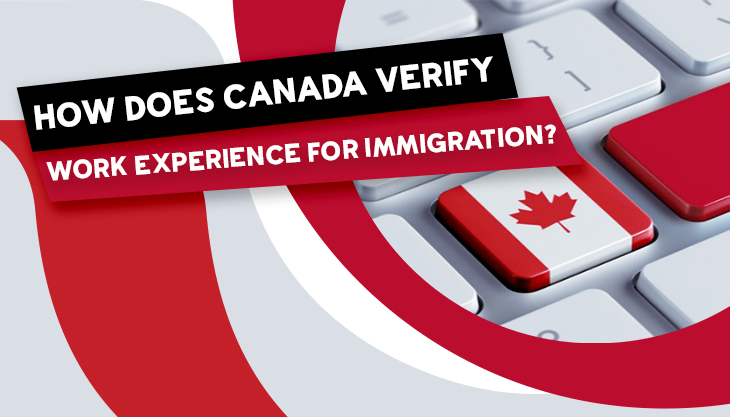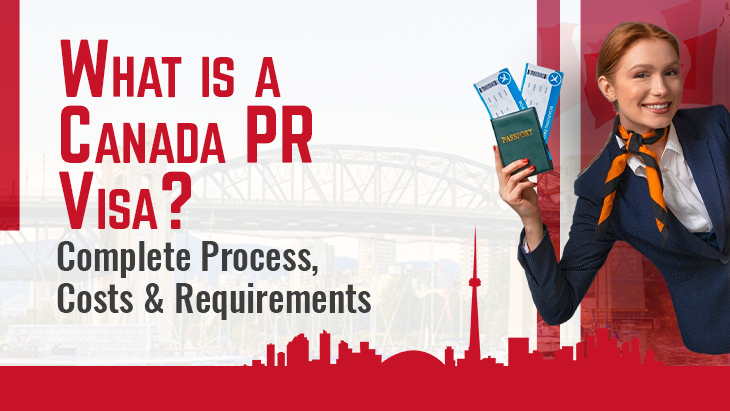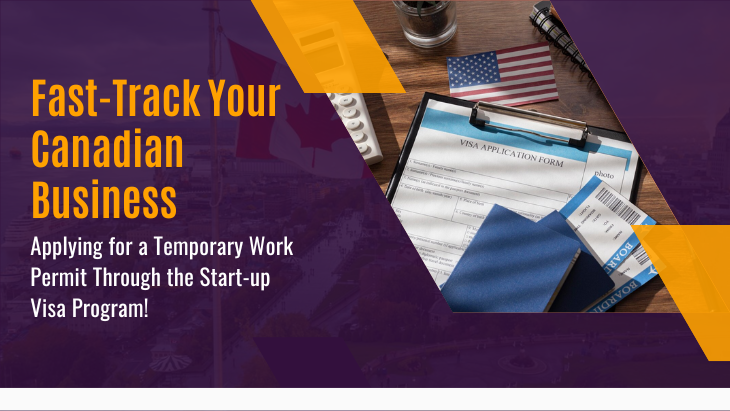When it concerns Canadian PR immigration, there are numerous applications embracing various profiles and vocations. It is notable that Canada, as one of the most recognized nations in terms of immigration and living standards, is witnessing such large numbers. As a result, the IRCC and immigration officers must use certain criteria to assess applicants' background information.
To begin with, having job experience is required because it is one of the primary criteria for obtaining a Canada Immigration PR visa. As a result, in order to be considered by the officials for any of the programs, one must have a minimum of job experience. Immigration agents may utilize a variety of approaches to authenticate your professional experience history when you seek permanent residence in Canada.
After you've filed your permanent residency application, Immigration, Refugees, and Citizenship Canada (IRCC) verify all of the information you've supplied. You will need to supply supporting documents for your professional experience history for most skilled migration processes, such as Express Entry.
IRCC may ensure the information you've supplied in the following ways:
> A letter of reference:
In general, you will need to produce paperwork to support each period of job experience for the last ten years when completing an economic immigration application. A reference letter from your workplace is the greatest way of demonstrating your work experience. A letter of recommendation for immigrants is not the same as a letter of recommendation for a job application. Visit our devoted blog post for more guidance on what to take into account in your letter.
A reference letter will not be enough if you are self-employed. Instead, you'll need to submit documentation like:
* Articles of registration or other proof of ownership of a firm
* Proof of self-employment earnings
* Third-party documentation proving your expertise (including payment details)
> Contact your place of business:
Canadian immigration agents may call your company to validate the data in your application when validating your job experience. However, it is never guaranteed that IRCC will approach your employer; it is always entirely at the discretion of the officer examining your case.
> Check the information on the company's registration:
When checking your employment history, immigration agents may also check your employer's business registration records.
They may examine facts like the business location and communication information to make sure there are no red flags, such as a residential address submitted for the business address or a private email address included with personal details i.e. contact information, throughout this process.
> Verify your NOC code:
An immigration lawyer will need to authenticate your NOC code in order to evaluate if you fit the conditions of an economic immigration system. To do so, they'll compare the duties listed in your reference letter to the major responsibilities of the NOC code you've chosen.
It's worth noting that if your employer's responsibilities in your recommendation letter are taken precisely from the NOC code, the immigration officer will most likely raise red flags. The letter should provide a real and complete outline of the responsibilities you had in your previous position.
> Additional documentation should be requested:
If immigration agents need more information about your job experience throughout the verification process, they might issue a demand for more paperwork. IRCC will seek documents based on what you've already submitted and your unique circumstances.
> Verifying employment experience in Canada:
Immigration inspectors would almost certainly ask for your tax paperwork while validating your Canadian employment experience (T4s, Notice of Assessments). This will assist the officer in determining whether or not the employment experience in Canada was self-employed. Self-employed Canadian work visa consultants' Canadian work experience is not taken into account for determining eligibility for the Canadian Experience Class.
They should also obtain a notice of their employment and study permits if they have worked in Canada. This will assist the officer in determining if you worked under legitimate authorization and not while pursuing full-time study.
What happens if an individual submits their application without a reference letter?
If you do not include a referral letter that proves your job history, IRCC may consider your application incomplete and return it to you. Your registration for permanent residency will be checked for completeness after you submit it. During the thoroughness check, the immigration department will go over all of the supporting documents to ensure that they are all present and correct. You will need to present your application again if the officer returns it as incomplete. If you're going through Express Entry, you might have to wait for a new Invitation to Apply (ITA).
A firsthand declaration attesting to your own job experience is not considered sufficient proof. IRCC may reject your application if you provide a personal statement in lieu of acceptable proof.
Information misrepresentation:
Misrepresentation includes things like writing your own reference letter or presenting false documentation. Misrepresentation is a serious offence that may land you in jail for five years. To minimize issues during the immigration process, it is critical, to be honest, and upfront on your immigration application.














Post Comments